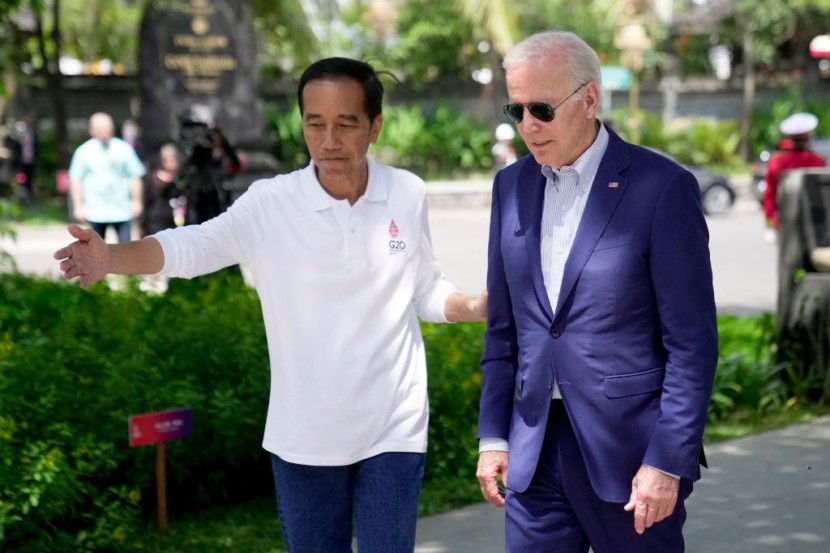
The imminent G20 summit in India is expected to be a turning point in global efforts to combat climate change and advance sustainable development.
The World Bank is at the forefront of US President Joe Biden's and his administration's efforts to reshape and strengthen multilateral development banks, with the World Bank at the forefront of their agenda.
G20 Summit: World Bank Reform for Climate Action
This action is intended to provide countries with a credible alternative to China's international lending practices while addressing pressing issues like climate change and infrastructure development.
Under the Biden administration, the World Bank, which was established after World War II to alleviate poverty and promote economic development in low- and middle-income countries, is enduring a transformation.
During a recent press briefing, White House National Security Adviser Jake Sullivan emphasized the administration's commitment to reforming the World Bank. Per Reuters, he stated, "One of our main focuses heading into the G20: delivering on an agenda fundamentally reshaping and scaling up the multilateral development banks, especially the World Bank."
Historically, the World Bank has played a crucial role in providing financial support for global development initiatives. In response to shifting global dynamics, however, the US government, under the leadership of President Biden, is actively advocating for the institution to expand its efforts in addressing climate change and hunger-related issues.
Ajay Banga, the new chief executive officer of the World Bank, has been instrumental in pressing for these changes, which aim to increase the bank's lending capacity via new funding and balance sheet regulations. The US administration's push for World Bank reform is partly motivated by a desire to provide credible alternatives to China's overseas lending and infrastructure development initiatives.
The Belt and Road Initiative's (BRI) extensive investments in infrastructure initiatives across Asia, Africa, and Europe have attracted international attention, NDTV reported. Concerns have been expressed, however, regarding the transparency, sustainability, and potential debt burdens of Chinese lending.
The White House submitted a supplemental budget request to Congress late in August, requesting $3.3 billion in additional funding for the World Bank. This funding is intended to "substantially increase development and infrastructure financing" via the World Bank.
By doing so, the United States wants to provide countries with an alternative source of transparent financing, high quality, and free of the coercive tactics sometimes associated with Chinese lending. Sullivan emphasized the vital role that multilateral development banks play in encouraging transparent and high-quality investments in developing nations.
These institutions are considered essential tools in addressing the complex challenges confronting the world today and in the future. By reshaping and scaling up these banks, the United States intends to strengthen its capacity to address pressing global issues, including climate change, infrastructure development, and poverty reduction.
The Climate Change Front and Center
President Biden's agenda at the G20 summit places climate change front and center. The increasing frequency and severity of extreme weather events, rising global temperatures, and the need for sustainable and green development practices highlight the urgency of addressing climate-related challenges.
The administration of President Biden is committed to advancing climate-friendly initiatives and investments. During the summit, President Biden will urge G20 members to provide significant debt relief for low- and middle-income countries.
According to Politico, this is especially pertinent given that the COVID-19 pandemic has exacerbated global economic challenges. Debt relief measures can assist vulnerable nations in allocating more funds to climate change mitigation and adaptation initiatives and sustainable development initiatives.
As President Joe Biden prepares to attend the G20 summit in India, his agenda demonstrates a solid commitment to reshaping multilateral development institutions, with the World Bank in the lead, to address urgent global challenges.
The United States seeks to provide a credible alternative to China's international lending practices by expanding the World Bank's lending capacity and promoting transparency and sustainability.
In addition, President Biden's emphasis on climate change and sustainable development reflects the critical need for international cooperation in combating environmental crises and advancing green initiatives.
The G20 summit provides a forum for world leaders to collaborate on these crucial issues, paving the way for a more sustainable and resilient global future.
Related Article : Pope Francis Admits Comments on Russian Imperialism Were Badly Phrased
© 2026 HNGN, All rights reserved. Do not reproduce without permission.








